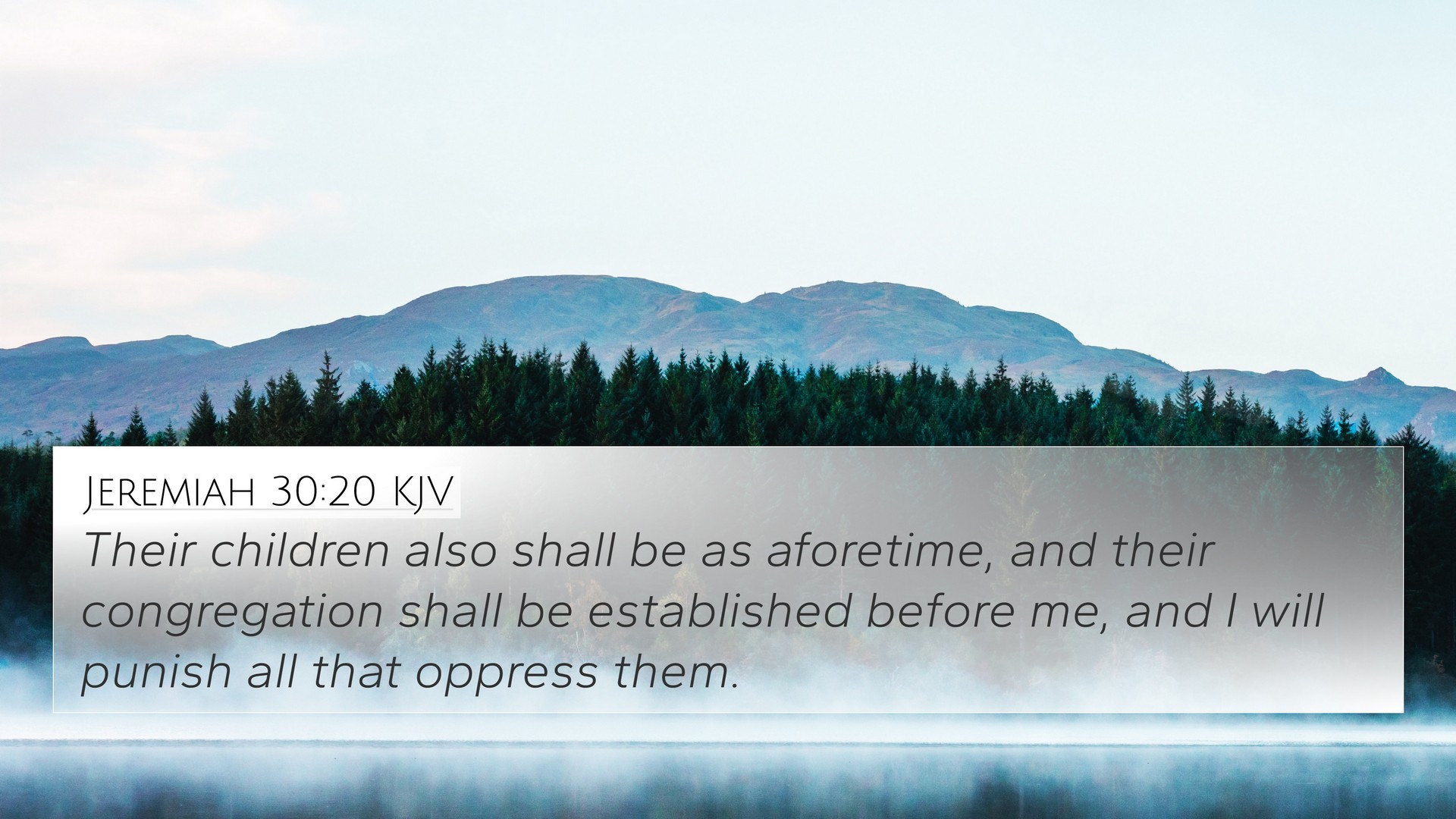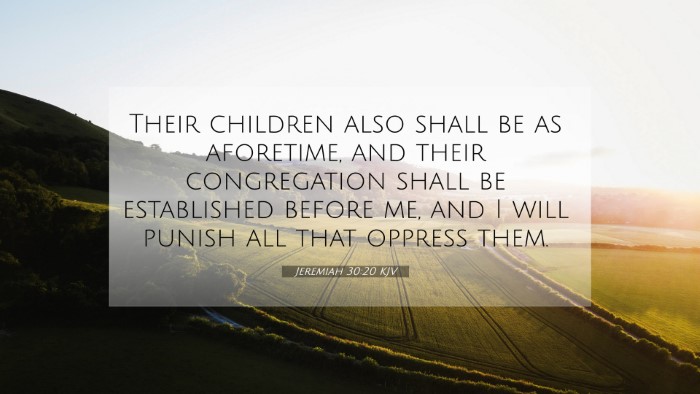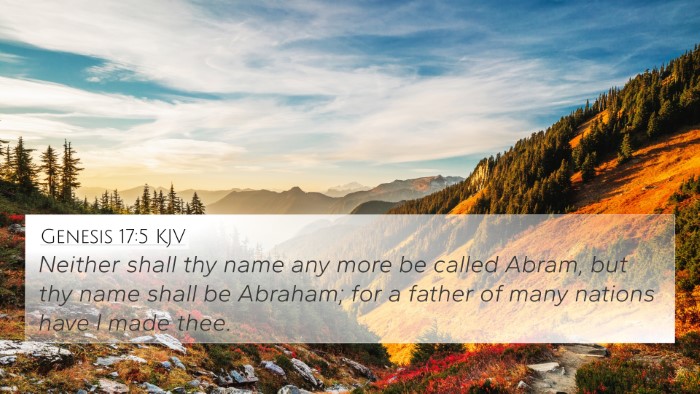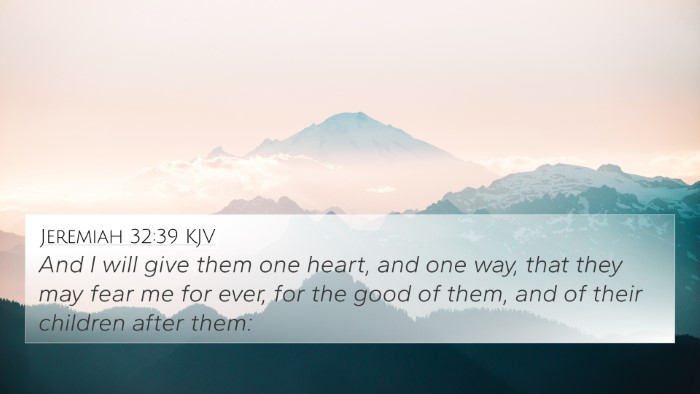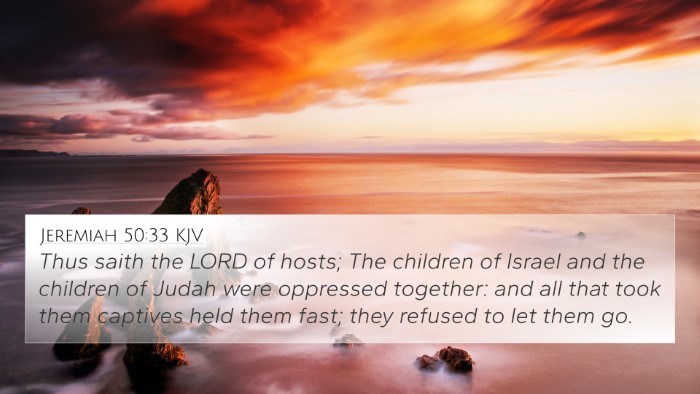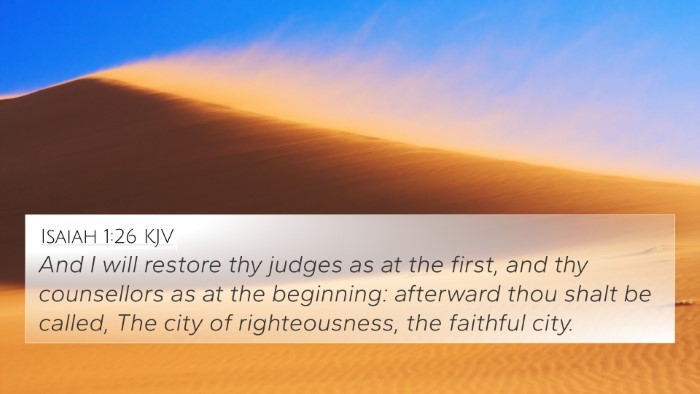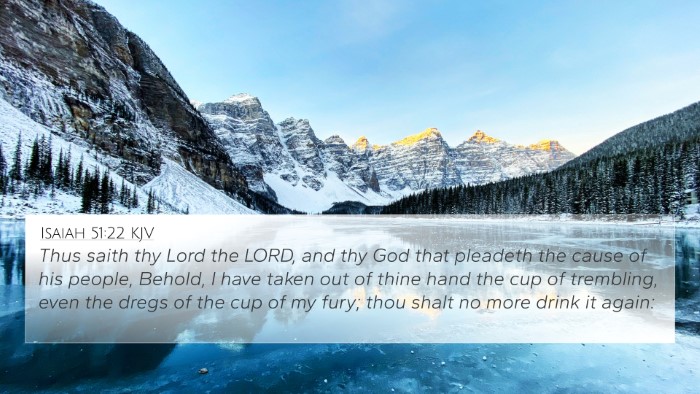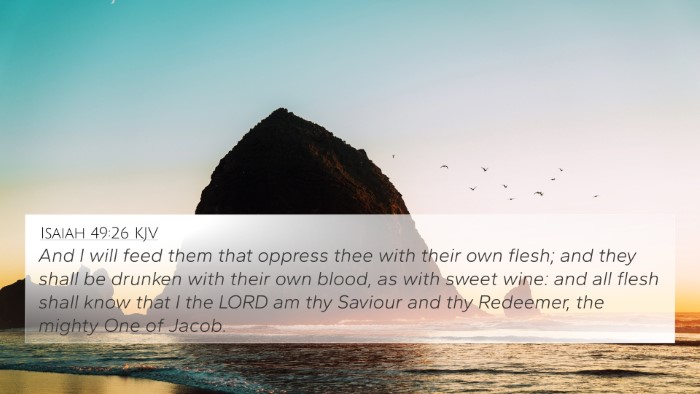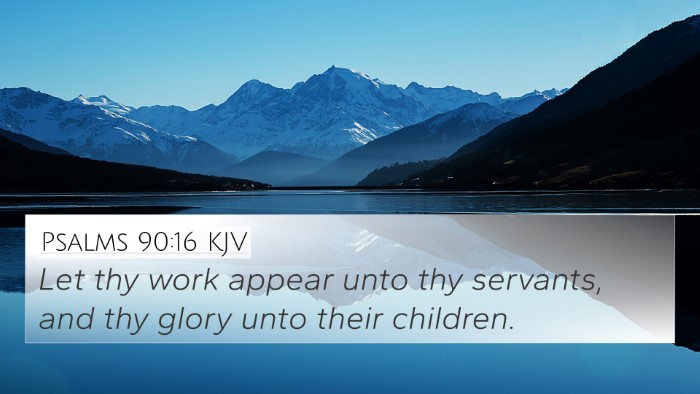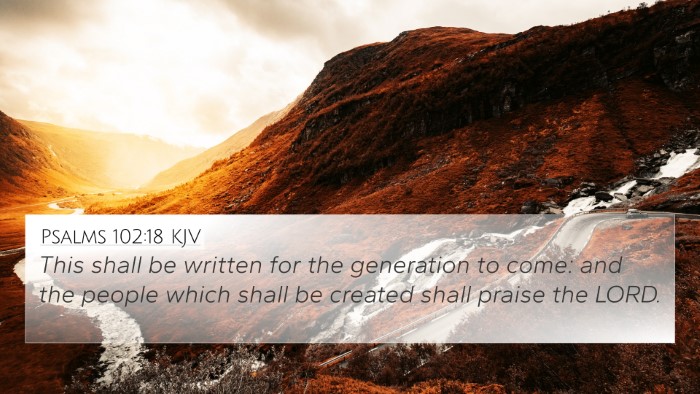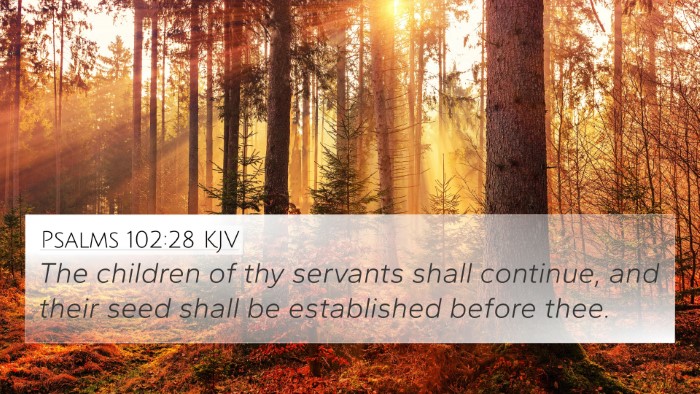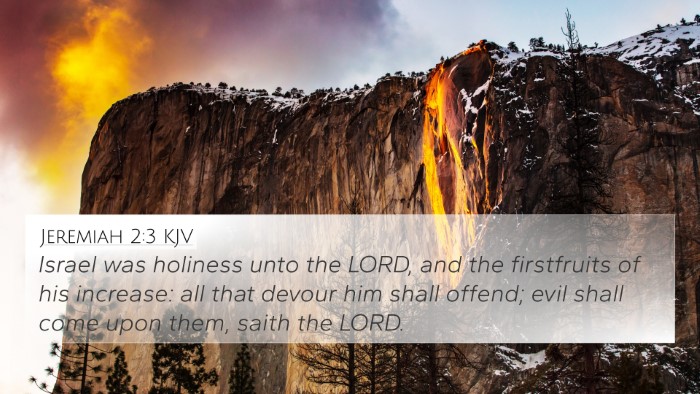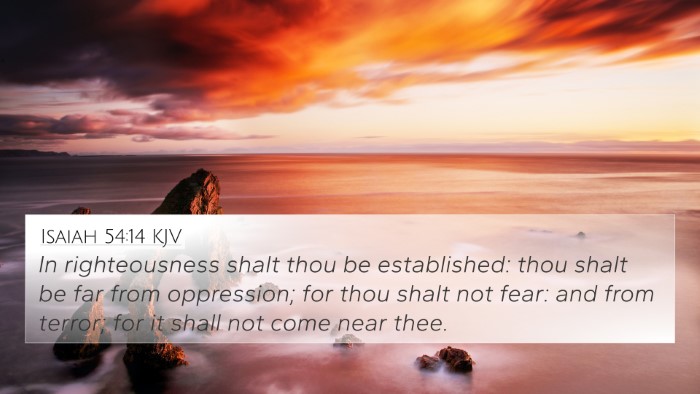Meaning of Jeremiah 30:20
Jeremiah 30:20 is a verse that encapsulates God's promise of restoration and blessings for His people, focusing on themes of mercy, hope, and renewal. To provide a deeper understanding, insights from public domain commentaries will be compiled below.
Verse Context
This verse reads as follows:
"Their children also shall be as aforetime, and their congregation shall be established before me: and I will punish all that oppress them." (Jeremiah 30:20)
Commentary Insights
Matthew Henry's Commentary
According to Matthew Henry, this verse signifies the restoration of the family structure and community among the people of Israel. The mention of children symbolizes future generations who will enjoy the blessings previously given. God's assurance of establishing their congregation conveys stability, peace, and growth. Furthermore, Henry emphasizes that divine justice will be executed against the oppressors, ensuring that the enemies of Israel will face consequences for their actions.
Albert Barnes' Commentary
Albert Barnes elaborates on the notion of God's intention to revitalize His people. He states that the security of their children indicates a return to normalcy and continuity of life, with the promise of a secure future. Barnes highlights that God's acknowledgment of the congregation’s establishment reflects His commitment to guide and protect His people, ready to bless them abundantly. The punishment of oppressors serves as a reminder that God watches over justice and equity for His chosen ones.
Adam Clarke's Commentary
Meanwhile, Adam Clarke offers a detailed exposition of how God's intervention marks a turning point for Israel. He suggests that the phrase "their congregation shall be established" indicates a reformation in spiritual matters and communal identity that will restore faith. Clarke also touches upon the implications of punishment for the oppressors, signifying divine governance and assuring that injustice will not go unaddressed, ultimately leading to a divine order.
Thematic Connections
The insights from these commentaries reflect several overarching themes:
- Restoration: The verse emphasizes God's intention to restore Israel's familial and communal structures.
- Hope for Future Generations: The mention of children highlights God's providence for future prosperity and blessings.
- Divine Justice: There is a firm reminder that those who oppress God's people will face His wrath and justice.
- Security and Stability: God's promise to establish their congregation conveys a message of hope for an enduring and secure presence among His people.
Cross-References
This verse beautifully interconnects with various other scriptures within the Bible. Below are some notable cross-references:
- Isaiah 54:13: "And all your children shall be taught by the LORD, and great shall be the peace of your children."
- Ezekiel 37:25: "And they shall dwell in the land that I have given unto Jacob my servant, wherein your fathers have dwelt; and they shall dwell therein, even they, and their children, and their children's children forever: and my servant David shall be their prince forever."
- Joel 2:28-29: "And it shall come to pass afterward, that I will pour out my Spirit on all flesh; and your sons and your daughters shall prophesy..."
- Romans 8:37: "Nay, in all these things we are more than conquerors through him that loved us."
- 2 Thessalonians 1:6: "Seeing it is a righteous thing with God to recompense tribulation to them that trouble you."
- John 10:28-29: "And I give unto them eternal life; and they shall never perish, neither shall any man pluck them out of my hand."
- Psalms 102:28: "The children of your servants shall dwell secure; their offspring shall be established before you."
- Micah 7:18: "Who is a God like you, pardoning iniquity and passing over transgression for the remnant of his inheritance?"
- Lamentations 3:31-33: "For the Lord will not cast off forever; but though he cause grief, yet will he have compassion according to the multitude of his mercies."
- Hebrews 12:6: "For whom the Lord loves, he chastens, and scourges every son whom he receives."
Conclusion
In conclusion, Jeremiah 30:20 serves as a powerful reminder of God's unyielding promise to restore, protect, and bless His people. This verse, enriched by the collective insights of Matthew Henry, Albert Barnes, and Adam Clarke, showcases the profound themes of hope, divine justice, and community strength interwoven throughout scripture. Cross-references to various biblical passages reinforce these themes, creating a web of interconnected messages that highlight God’s faithfulness across time and circumstances.
